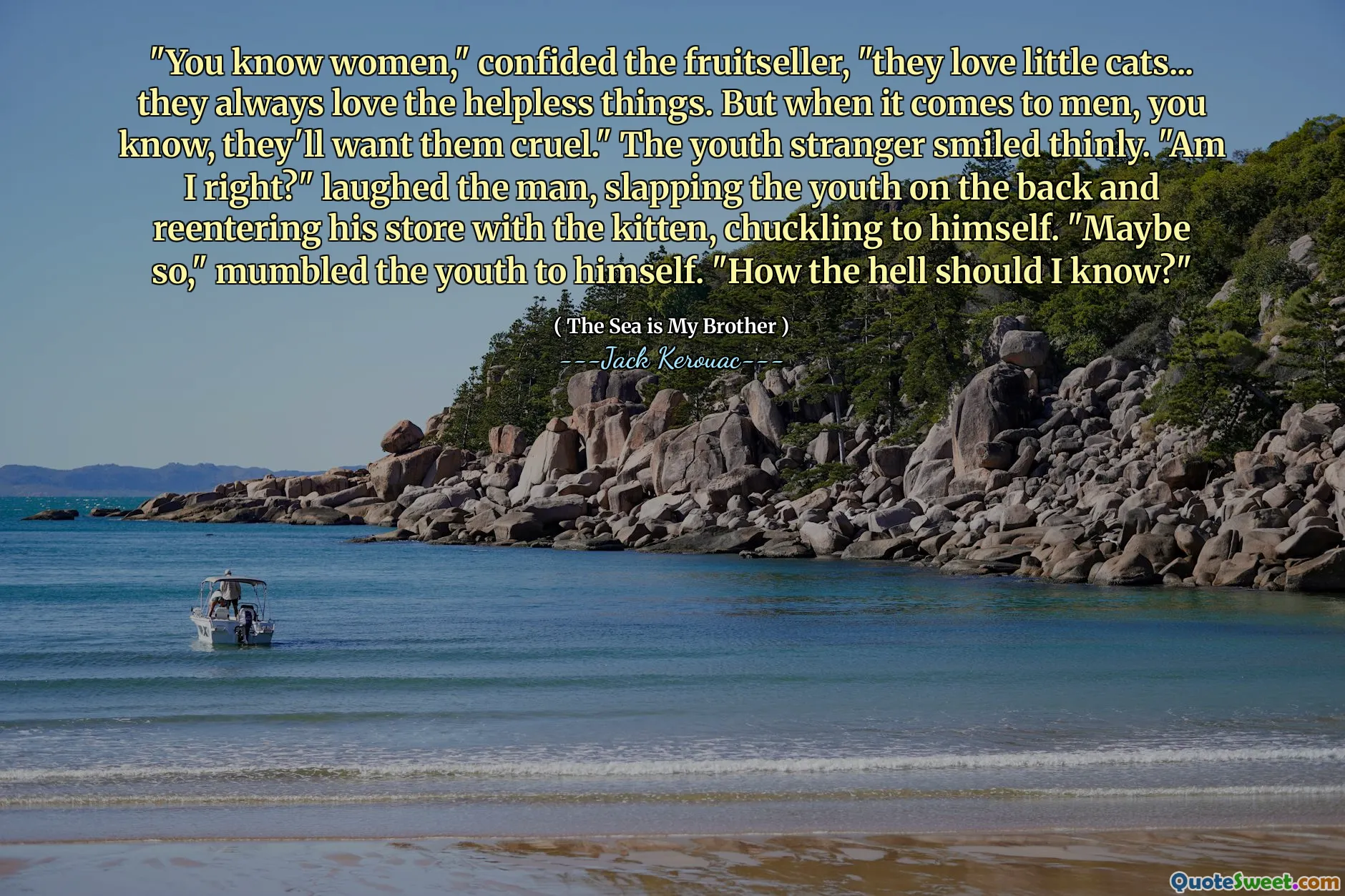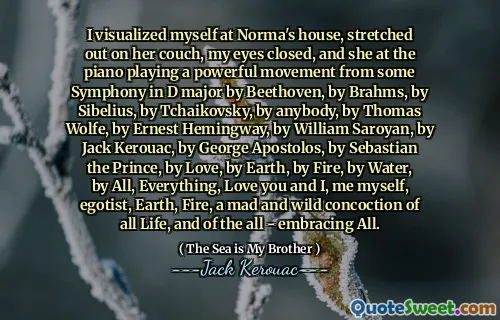
"You know women," confided the fruitseller, "they love little cats... they always love the helpless things. But when it comes to men, you know, they'll want them cruel." The youth stranger smiled thinly. "Am I right?" laughed the man, slapping the youth on the back and reentering his store with the kitten, chuckling to himself. "Maybe so," mumbled the youth to himself. "How the hell should I know?"
This passage from Jack Kerouac's The Sea is My Brother presents a candid and somewhat cynical reflection on human relationships, specifically through the lens of gender dynamics. The fruitseller's comment attributes a contradictory characteristic to women — a nurturing affection towards vulnerable creatures like kittens, contrasted sharply against a seemingly cruel preference when it comes to men. This duality may metaphorically suggest the complexity of love and attraction, evoking themes of tenderness intertwined with pain or challenge. The youth stranger's ambiguous reactions serve as a narrative counterpoint; his thin smile and mumbled uncertainty highlight a youthful skepticism or confusion regarding the generalized, perhaps stereotypical, assertions about women. The fruitseller's laughter and chuckle encapsulate a sort of worldly wisdom blended with irony, perhaps reflective of lived experience or cultural narratives. The layered dialogue hints at our difficulties in understanding the opposite sex, or even ourselves, expressing a universal uncertainty about human desires and relationships. It also points to how societal expectations and perceptions shape our assumptions. Kerouac masterfully captures a moment of conversation that blends humor, doubt, and philosophical resignation. The quote provokes reflection on how we project complex emotions and behaviors onto others based on limited observations, reminding us to question the labels and dichotomies often imposed on human nature.







